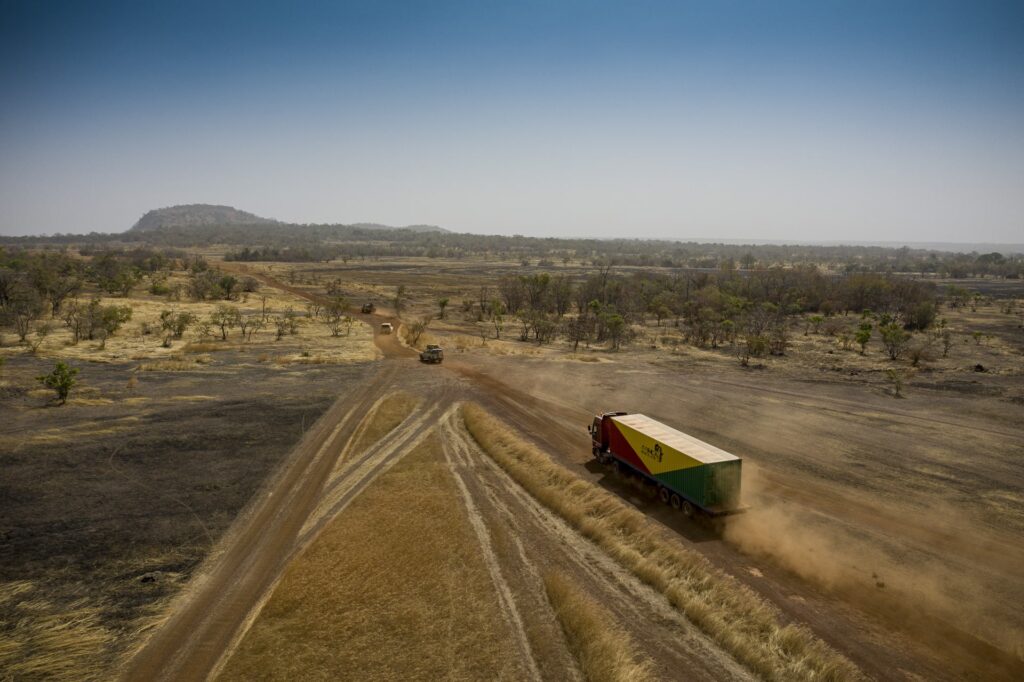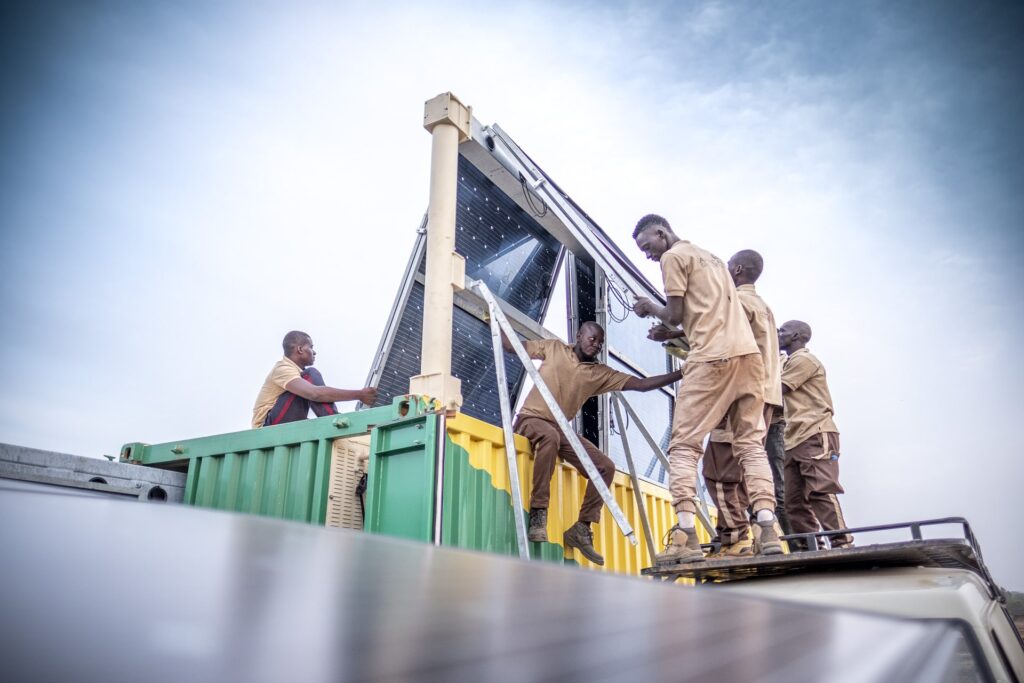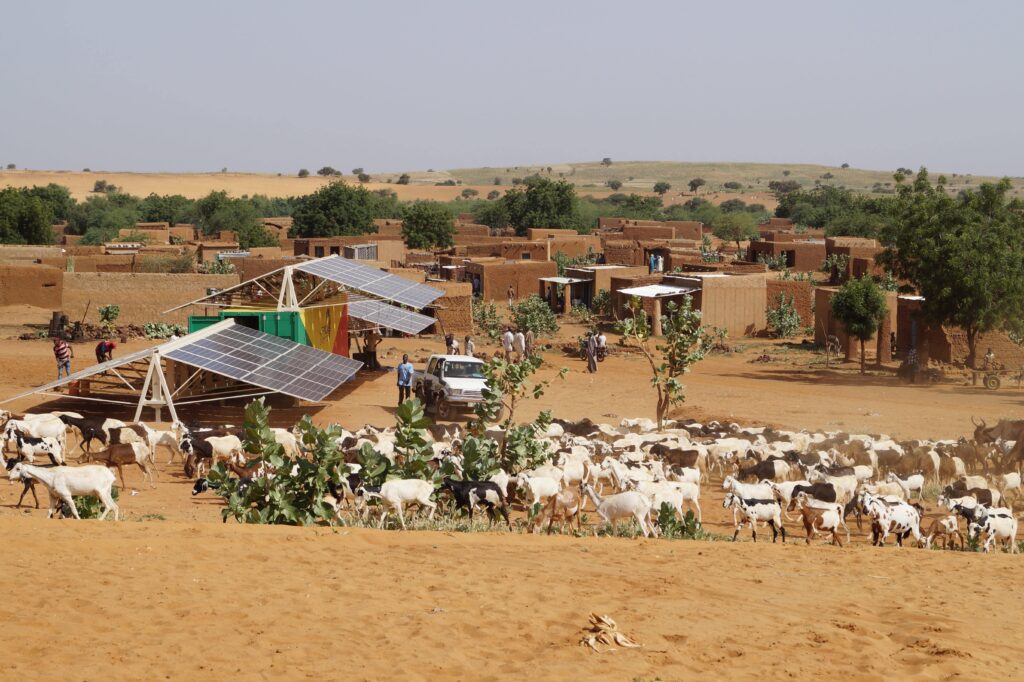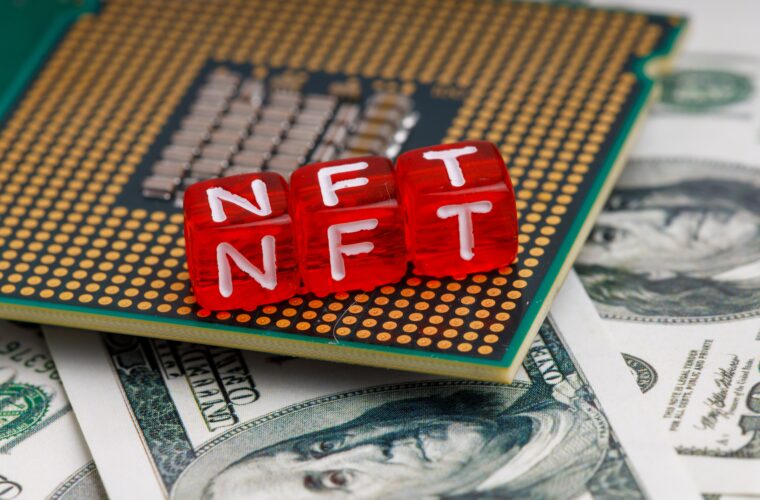Torsten Schreiber is the founder of Africa GreenTec which has been around since 2014. The climate change activist started the company because he wanted to bring German engineering to Africa and exchange diesel generators with photovoltaic. Fiona Alston caught up with him at the recent IMPACT FESTIVAL 2021.
Africa GreenTec has developed a solution to supply power to entire village communities in rural regions with electricity and sustainable technologies.
Its Solartainer is driven by solar energy, and not only can these structures provide power to off-grid regions, but their ImpactSites can provide job opportunities and income streams and of course help the environment all in one go.
How much of a challenge was it to bring renewable energy to Africa back in 2014? It feels like it’s only now the world is fully waking up to the climate crisis.
In Africa up until now the choice between fossil and renewable was not that big a decision because 600 million people are without any electricity. So, people didn’t mind if it was fossil fuel or renewable, they just wanted energy.
It’s a fight for financial capacity. The main question is can you acquire enough investment capital for the energy source? And I’m fighting for them to choose renewable when that investment is made.
How did you get this project off the ground?
As a person, I would say I’m an influencer for the sub-Saharan market and I really try to promote renewable energy all over, even for our competitors – if you want to bring renewable energy to Africa, you have my support.
At Africa GreenTec we have the whole value chain from the project development to electricity in homes, especially in rural areas, we have focused on rural electrification.
How difficult has it been getting renewable energy to rural areas in Africa? What challenges did you face?
In the beginning we heard only nos. Everybody said it would not function and it was not possible but now people can see that we can do it. We have more than 25 villages now in war zones and they are still running. In Mali, one of our main countries at the moment, there’s been two coup d’état in six months and all our stations are still running.




The list of the challenges is huge, but we are working with passion, the whole team is working with that passion. Once you have been in a village where people had never electricity and you install your container and when it’s dark you switch on the light for the first time you will never forget that moment. People are dancing in ecstasy until three o’clock in the morning because for them this is a wonder. This impact is the main driver of Africa GreenTec.
As you have scaled the company how has the journey been?
The main challenge still is getting finance – capex finance but the bigger you get the bigger the challenges. Initially the problems where more technical – how to produce the solar power plant that it’s sustainable and works in wind and storms. We learned a lot and are now on our seventh generation of the product.
Now the challenges are in business modelling – how to make it more profitable and how get funding cheaper for lower interest rate.
The biggest problem is trust. People have still the feeling that sub-Saharan Africa is a poor, dangerous continent, and yes it can be but not always. In our opinion it’s a big investment opportunity. The sun is strong and if you build a good power plant with longevity, you have a good safe investment.
You must have seen some inspiring things since you began this project, anything that sticks with you?
We had a client who in 2017 was already in Morocco getting ready to travel to Spain. His family gave him $15,000 which he would be giving to the guy who would bring him over the border. Then his uncle called him on the phone and said, ‘the Germans are here, and we have electricity at home’. So, he took a bus and came back to his village, and he invested this $15,000 in a restaurant and a chicken farm. And today, he is one of the most successful entrepreneurs in his village.
We also see women starting see small business projects like selling fruit juices which is made possible when they keep fruit fresh by using the cold storage containers. Women come to us and say thank you, they now have their own money and don’t have to ask their husband for money, which in some cases can provide freedom from abuse.
What brought you here to IMPACT FESTIVAL, and what are you hoping to get out of it?
I committed myself very early, because our company is ten minutes from here – we are a big part of it.
We are quite flexible in producing financial instruments, because my background from the crowdfunding environment so we can do that, but now our projects are much bigger so now we are addressing institutional investors.
They are still quite conservative if you talk about emerging markets, especially in Germany, because German investors in Africa are quite few. We are trying to change this, but we have a really conservative environment. Events like this can help change that.
Is there anything else you’d like to add?
Thank you very much for chatting with me. I’m happy to have the opportunity of an international audience because, as I said, Germany is not number one in impact investing, it’s more common in the English-speaking environment and we want to change that.



